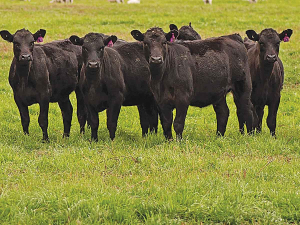Tickets available for Beef + Lamb NZ's Out the Gate 2026
Tickets are now available for Beef + Lamb New Zealand’s (B+LNZ) Out the Gate, returning from 19-21 May 2026 at Te Pae, Christchurch.
 Strong industry participation and controls remain critical to controlling and ultimately eradicating TB, says B+LNZ.
Strong industry participation and controls remain critical to controlling and ultimately eradicating TB, says B+LNZ.
New Zealand's TBfree programme has made great progress in reducing the impact of the disease on livestock herds, but there’s still a long way to go, according to Beef+Lamb NZ.
TBfree, which is administered by OSPRI, has a goal of eradicating TB from New Zealand by 2055. To date, the programme has seen current numbers of affected herds reduced to 14 out of around 75,000.
However, Dave Harrison, general manager policy and advocacy for B+LNZ, says strong industry participation and controls remain critical to controlling and ultimately eradicating the disease.
“The success so far is down to everyone involved in TBfree, including farmers, vets, farm advisors, pest controllers, and regulatory agencies,” says Harrison.
“We are doing well but we cannot afford to be complacent. There’s more to do to eradicate the disease, to protect our valuable dairy, beef and deer industries and safeguard our rural communities.
“If we take our eye off the ball, then there’s a risk that we could go backwards quickly – something we saw in the 1970s and 1980s when control efforts were scaled back. The reality is that we won’t get to zero, or be able to maintain current low numbers, until the disease is no longer present in wildlife, primarily possums,” says Harrison.
“The risk is not just to our beef, dairy and venison export industries, but also to the wellbeing of our farmers and our rural communities.”
He is encouraging farmers to share their views on the future of TB control and eradication in the upcoming 10 year statutory review of the programme.
The review provides an opportunity to discuss how the programme is tracking against the current plan set in 2016.
It will look at different options for the best ways to achieve the programme’s goal. There will be opportunities to provide input into the review during June and July.
“We need everyone involved to have their say on what, if anything, we need to do differently over the next ten years.
Bovine TB is a risk to the farming industry, animal health and the country’s economy. New Zealand is at a higher risk than many other countries, in part due to the risk of TB being spread by possums.
Proposed options in the consultation will be informed by several independent technical, science and financial reviews of the 2016 TB Plan and its progress over the last nine years.
There will be online consultation and submissions as well as some in-person presentations in areas still most impacted by TB.
Following consultation, recommendations will go to the Minister of Biosecurity in August.
OSPRI is an independent company tasked with delivery of two statutory programmes, NAIT and TB free. It is also currently managing the eradication of Mycoplasma bovis.
It is funded by farmers through shareholders DairyNZ, Beef + Lamb New Zealand and Deer Industry New Zealand, and the Ministry for Primary Industries (MPI).
Global trade has been thrown into another bout of uncertainty following the overnight ruling by US Supreme Court, striking down President Donald Trump's decision to impose additional tariffs on trading partners.
Controls on the movement of fruit and vegetables in the Auckland suburb of Mt Roskill have been lifted.
Fonterra farmer shareholders and unit holders are in line for another payment in April.
Farmers are being encouraged to take a closer look at the refrigerants running inside their on-farm systems, as international and domestic pressure continues to build on high global warming potential (GWP) 400-series refrigerants.
As expected, Fonterra has lifted its 2025-26 forecast farmgate milk price mid-point to $9.50/kgMS.
Bovonic says a return on investment study has found its automated mastitis detection technology, QuadSense, is delivering financial, labour, and animal-health benefits on New Zealand dairy farms worth an estimated $29,547 per season.